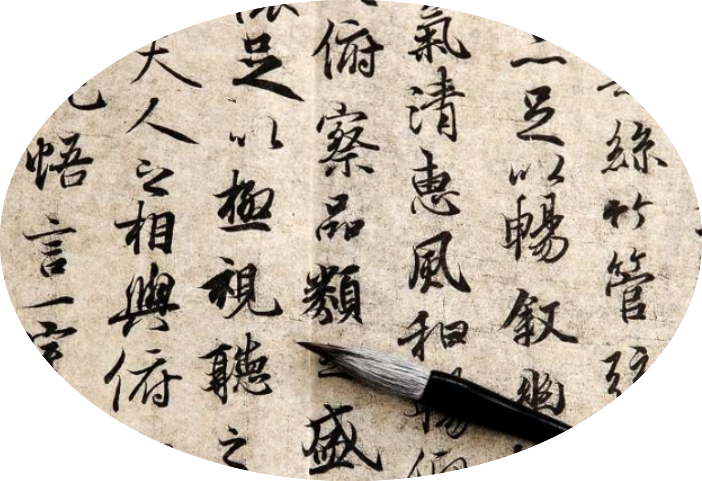Hanese (Language)
For the Hanese race, click here
Origin
The ancient Hanese language, called "Hanja" by the natives, originates from Honji, specifically from the Hanese scholars of Jalok. Most widely used in the islands of Honji, it serves as the native tongue to the vast majority of the Hanese people, though many choose to pick up common as their second language. After the Seglyo had been secured eons ago, the Hanese began flourishing quickly. A grand city was constructed upon the meteor, and the people’s lives became peaceful once more. Spoken language had developed ever since the Cheoms roamed the lands, but the scholars came to realize that they required a way to record their knowledge as their studies broadened and further unify the people so that their work would be passed down safely generation after generation.
Sae-jun, a reputable scholar who worked for the leadership, quickly came to notice this concern and forged a written language for their people with the help of several other scholars. Eventually, these characters spread wide and far across the continent, and were taught to nearly all of the Hanese of the empire. Because of the Honji’s geography, the Hanese began to form varying types of dialects, each distinct to its own island. Their accents have become so different from each other’s that a Hanese can tell approximately where in Honji a fellow Hanese is from solely by listening to their speech.
Description
Hanese is arguably one of the most unique and exotic languages existing on Aethius. Unlike almost any other language, Hanese uses characters instead of alphabets, with each one having their own meaning and pronunciation. Because of this, Hanese is also considered one of the hardest languages to write; there are more than 80,000 characters known to exist, though only about four thousand are used daily. They have been said to derived from the objects that are related to their meaning; however, because they have been standardized, simplified, and styled to make them easier to write, it is usually quite vague, especially to foreigners learning the language for the first time. Spoken language also sounds fairly different from most western languages, often described as sounding blocky, yet melodic. Each character, when pronounced, has their own syllable, which makes it sound clearer. Thus, it is much easier to learn how to speak Hanese rather than write it.
Because the Hanese have a long-lived culture of respecting their elders, there are two different ways to end a sentence. Using formal speech displays the speaker’s respect to the other person, while informal speech indicates intimacy between the people conversing. However, it is considered extremely rude to address an elder informally, unless the elder is part of a close family member. The nobility and royalty, however, are an exemption to this rule, for they must be addressed formally at all times regardless of what age they are: even among themselves.
Basic Phrases
- Hello!
- Informal: Anneong!
- Formal: Anneonghaseyo!
- Goodbye.
- Informal: Anneong.
- Formal:
- Anneonghi gaseyo. (when the other person is the one leaving)
- Anneonghi geseyo. (when the other person is the one staying)
- Thank you.
- Informal: Gomawo.
- Formal:
- Gomawoyo.
- Gamsahamnida.
- How are you today?
- Informal: Ohneul eoddae?
- Formal: Ohneul eoddaeyo?
- Sorry.
- Informal: Mi-an hae.
- Formal:
- Mi-an haeyo.
- Juesong haeyo.
| The World of Aethius • The Multiverse of Aethier |
